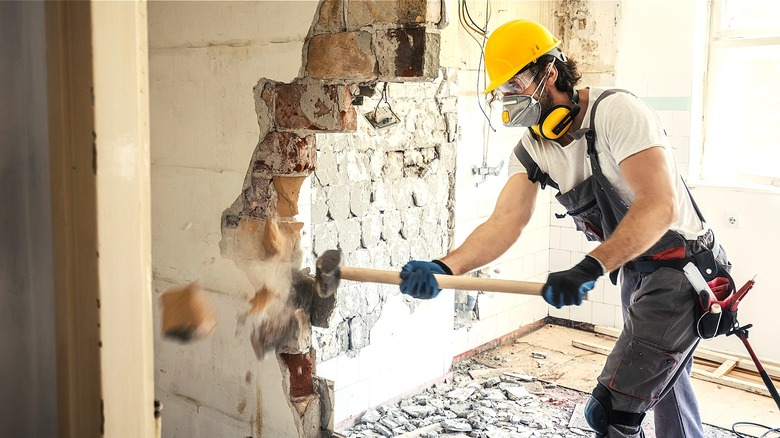The Crucial Renovation Mistake Scott McGillivray Constantly Sees Homeowners Make
During renovations, some people skip the careful planning, research, and attention to detail required to carry out a successful operation. Some common mistakes are underestimating costs, ignoring building codes, forgoing necessary permits, and ignoring structural issues. This is why Scott McGillivray sees cutting corners overall as the most common renovation mistake that homeowners make.
"Being somebody that renovates probably 20 to 30 spaces or properties a year, you see a lot of mistakes. The No. 1 thing is that people take shortcuts on certain things that should never be done unprofessionally, like structural, electrical, plumbing, [and] mechanical," he said in an interview Realtor.com. When doing a renovation, it's important to look at things in the long term, employ professionals, prepare for the worst, and take your time with the process. By doing this, you make the necessary investments to ensure the safety, longevity, and functionality of your home.
Dangers associated with cutting corners
Skimping out on the essentials during a renovation can lead to various hazards and inconveniences. Structural issues can cause a whole host of safety issues like collapsing walls, ceilings, or floors while electrical problems can lead to fire hazards and raise the risk of electrocution and shock. Ignored plumbing issues, meanwhile, can result in leaks, mold growth, and other problems caused by water damage while inadequate mechanical systems can affect things like indoor air quality and uneven temperature in the house.
Cutting corners when it comes to these issues poses a serious risk to the safety and well-being of the home's occupants and visitors. It can also lead to fines, penalties, or added costs due to the maintenance and repairs that will be needed down the line. You might even have to restart the entire renovation project over again. Improper structural work can also reduce the overall value of the property because there will be red flags during inspections and assessments.
How to avoid making this renovation mistake
First and foremost, ensure you create a detailed plan and budget for your renovation. Factor in unexpected costs, delays, changes, and any other unanticipated problems during the process. Check and comply with local building codes and, when hiring, ensure you get experienced or qualified contractors who do quality work. They should have the right licenses and should be knowledgeable about the necessary permits.
As your renovation begins, don't minimize or skip over any existing structural problems that come uncovered. Avoid using cheap materials and/or labor to make temporary fixes or create surface-level solutions, and avoid rushing the process. "Anytime somebody thinks that they're going to save a few bucks and do something themselves, or just hide it behind the walls, it decreases the value of their home [and] it can cause long-term issues," said Scott McGillivray (via Realtor.com). Instead of taking the easy way out, exercise patience with your renovation and do things the right way from the onset.


